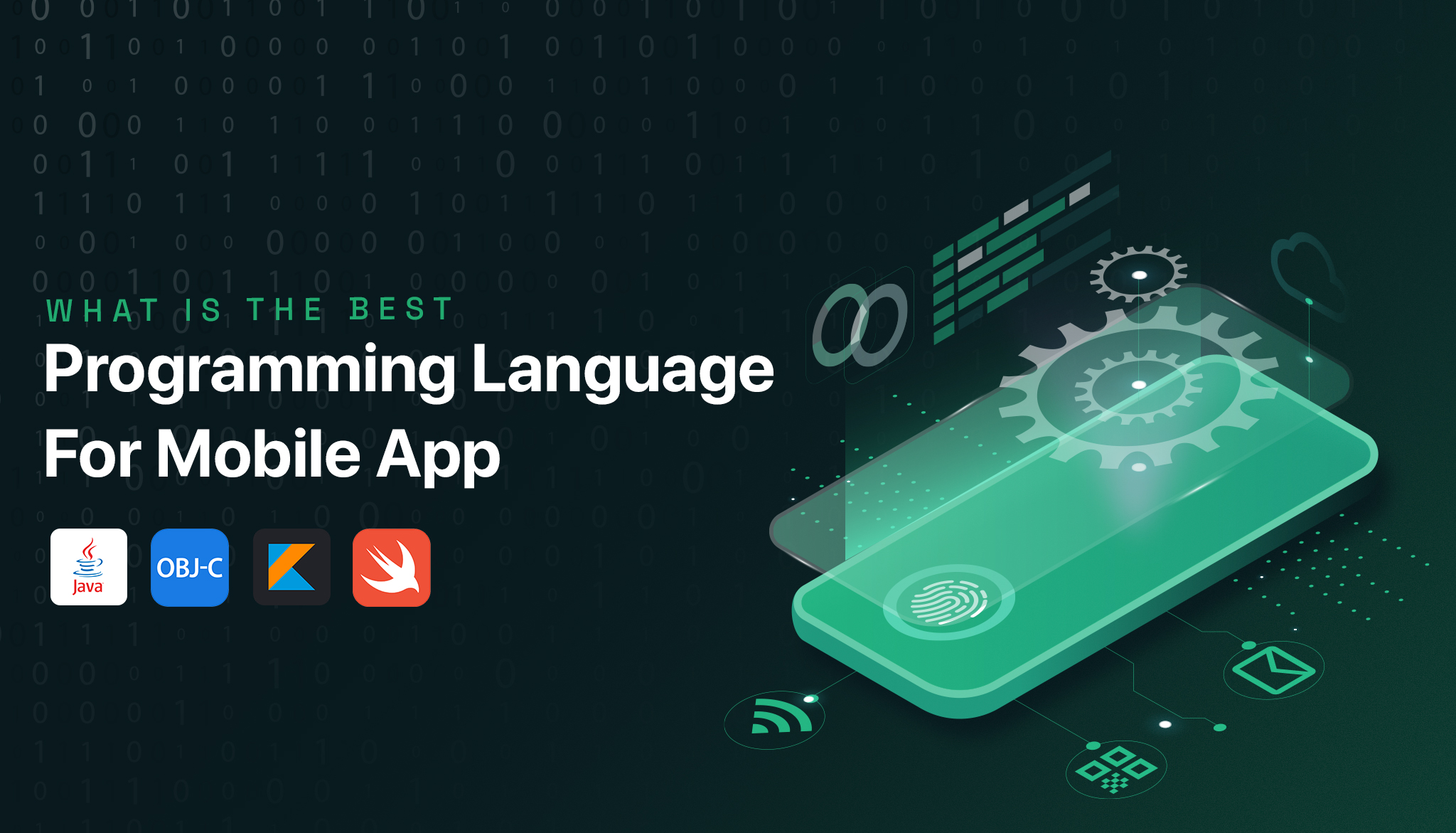Do you want your own Mobile App and you are confused about which programming language to use? Being the most diverse and developing branch of technologies nowadays both in everyday living and working, mobile applications have an impact on how people communicate, buy things, entertain themselves, and so on. With over 3.8 billion smartphone users worldwide, the demand for innovative applications is at an all-time high.
Choosing the best programming language for your mobile application that works smoothly is still a hectic task for developers. This happens due to the various choices of languages that exist with each having its pros and cons. We will analyse their unique features and describe the types of applications for which they should be used helping you make an informed decision that aligns with your project needs and goals.
A strong track record for the success of mobile apps has been built upon the list of Best programming languages for mobile app development. Therefore, finding the best language for development remains the necessity that leads you to create a top-class app.
Delving Into Different Kinds of Mobile Applications
There are numerous subfields within mobile app development. This section will go over the three most common types.
Cross-Platform Development
Hybrid applications are cross-platform applications that can be used on multiple platforms using a single codebase. These applications are coded on a single language that supports both Android and IOS devices and sometimes Web App Development too. Some of the most commonly used examples of hybrid applications are Flutter and React Native.
This makes the work more efficient as you don’t have to code the app for different OS separately, unless like in native where you are prone to code for a particular OS. Hybrid languages provide you the flexibility to code high-end applications using a single codebase which in terms is the total opposite of native languages.
Selecting native or hybrid platforms is the most often discussed topic when deciding which programming language is best for mobile apps. This blog will provide you with an overview of it and will make it easy for you to choose what is good for your app.
Like every other thing, the hybrid model also has its pros and cons We’ll take a closer look at the advantages and drawbacks of this app development method as we continue through this guide.
Platform-Specific Development
In platform-specific development, the coding is done using a language the operating system of the targeted device support. For example, a native iOS app is usually coded in Swift or Objective-C while a native Android app is written in Java or Kotlin. This method works well for both internal development of a specific app for the Apple App Store or Google Play.
Native Apps are the best choice for projects that require significant customization. In other words, they work great for VR apps, games, and apps with lots of moving parts and complicated designs. This means that you will need to make two different versions of your app for iOS and Android if you want it to work on both OS. This method takes more time and effort, but the result is generally better because it fits the platform and user needs better.
Web Apps:
Unlike hybrid and native apps, web applications are apps that are run on web servers and are accessed through web browsers. Web apps are not the type of application that you install on your device via Playstore or Apple store, these types of applications are accessed through URL and they can be used on any device with a stable internet connection and compatible browser. This makes web apps highly versatile and easy to update.
Some most popular frameworks that you can utilise in web app development are Angular, React and Vue.js these frameworks includes some advance features which make it easy to create interactive and responsive web apps and speed up the development process. Web apps also often use backend servers to handle business logic, data processing, and storage. Node.js, Django, Ruby on Rails, and ASP.NET are some popular backend technologies.
Why Choosing the Right Programming Language Matters
- The right language can make the process of development quicker and simpler, saving you time and effort.
- Some languages are designed to work better with specific platforms, like iOS or Android. And choosing them is the right choice if you are targeting a specific OS.
- The growth of your app depends on the growth of the language that you use, therefore choosing the right language is crucial.
- Your team must be comfortable and experienced with the language you choose.
- Popular languages have strong communities that can provide help and resources when you need them.
Best Programming Language For Mobile Apps
Next, let us look at some of the best coding languages for mobile applications. All programming languages have their pros and cons it solely depends on the user’s skills which suits them best. You can find languages below that fit your needs.
IOS Development:
Swift
Swift is an Apple-established computing language designed to manage application development for devices running on Apple’s ecosystem: iPad, Mac, or iPhone. Swift was introduced in the year 2014 and up to date it is the most preferred language for iOS App Development.
Swift excels in performance, it uses cutting-edge compiler technology to deliver fast execution of code, often surpassing Objective-C and other languages. Its full interoperability with Objective-C enables seamless integration of Swift code with existing Objective-C projects, facilitating gradual adoption in large-scale developments. Additionally, Swift’s support for dynamic libraries enhances user experience by reducing app size. Its effectiveness and user-friendliness have played a vital role in its growth.
Objective C
Apple introduced Objective-C as the inaugural programming language compatible with its platform to facilitate mobile applications. It’s an object-oriented programming language that uses syntax from C.
Objective-C gives full access to Apple’s extensive set of APIs and frameworks that is used to develop the rich features of iOS and macOS. Objective-C is not much of a developers-friendly language due to its syntax
Android Development
The following are the most widely used Android app Development languages.
Java
Java is the leading language for Android development. Java was launched in 1995 by Sun Microsystems but is now owned by Oracle. It is very lightweight and easily customizable for Android development.
It provides platform independence which means that code written in Java can run on any device that has JVM (java virtual machine) making it highly portable. The Object Oriented nature of Java allows developers to create reusable code which speeds up the development process and makes the code base easier to maintain. Other than that there’s a vast community of expert developers of Java which is a great help to beginner developers.
It is an excellent choice for Android development especially when you need to build a complex app with a lot of backend logic.
Kotlin
Kotlin is a statistically type modern language that more than 60% of developers use for Android applications. It was first introduced 12 years ago in 2011 and its latest most stable version was introduced in December 2023. It is the preferable language for Android development which is also officially recognised by Google for Android Development.
Its Interoperability with Java increases the efficiency of this language, this feature allows developers to use existing features and libraries of Java. It also provides many modern features with concise syntax as compared to Java which means you can achieve similar functionality with less code written.
Hybrid Development:
Flutter Dart
Dart with Flutter framework is used to build cross-platform applications that can be used in both IOS and Android OS. It is an open-source software framework that was introduced by Google in 2017.
The Flutter SDK allows the developers to write the code once and run it on any platform, such as iOS or Android, Web, or desktop platform, without maintaining different codebases. This integrated method consumes less time and effort. But perhaps the most important is Flutter’s widget library and flexible framework that enables it to provide easy ways for developers to create beautiful native look user interfaces. From simple buttons to complex animations and gestures; Flutter offers a rich set of customizable widgets, which makes your job easy in the development process.
React Native
It allows developers to build React Native Mobile App using Javascript and React. React native is an open-source framework that was developed by Facebook. It allows developers to create cross-platform apps that can run on both iOS and Android devices using a single code-base.
React Native is a combination of JS and React. This makes many developers already well versed in these technologies hence they can quite quickly jumpstart using React Native. Furthermore, React Native bridges the gap between JavaScript and native components, allowing apps to render with native components for better speed.
Which Programming Language Should You Choose?
Every programming language has its pros and cons. There is no clear answer to the question of which is better. It relies on the app type, the developer’s technical knowledge, the budget, and the time frame.
Native development is comparatively more expensive and most challenging to learn. But it’s necessary used for certain types of apps. While hybrid apps are more budget-friendly easy to implement and have fewer complications.
Conclusion
Zenkoders, a prominent firm in the United States for mobile application development, supplies you with the qualified individuals you need to build and design apps using the programming language mentioned above.
There is no right or wrong answer to the question of what programming language or framework you should select. If one programming language works well for someone’s mobile app, it might not fulfill your goal. All of the choices in this guide are good that you can consider using. There are even more programming languages that can be used to make mobile apps, such as Python C# and more.
FAQs:
There isn’t a one-size-fits-all answer to this question. The best programming language depends on your specific needs, including the type of app you’re developing, your team’s expertise, and the platforms you want to target. For iOS, Swift is highly recommended, while Java and Kotlin are popular for Android. For cross-platform development, Flutter with Dart and React Native are excellent choices.
Native app development involves coding apps specifically for a particular operating system (iOS or Android) using languages like Swift or Kotlin. This usually results in better performance and a more tailored user experience. Hybrid app development uses a single codebase for multiple platforms, typically leveraging frameworks like Flutter or React Native, which can save time and resources but may not offer the same level of performance as native apps.
Swift is preferred for iOS development because it is designed by Apple specifically for their ecosystem. It offers modern features, high performance, and safety, making it easier to write efficient and reliable code. Additionally, its interoperability with Objective-C allows for seamless integration with existing projects.
Native development is preferable when performance, platform-specific features, and user experience are critical. This is often the case for complex applications like games, VR apps, and those requiring extensive customizations. If your project requires access to specific device features or optimal performance, native development is the better choice despite its higher cost and longer development time.
When choosing a programming language, consider the type of app you’re developing, the platforms you want to support, your team’s expertise, the development timeline, and your budget. Additionally, consider the language’s performance, scalability, community support, and the availability of libraries and frameworks that can aid in development.


